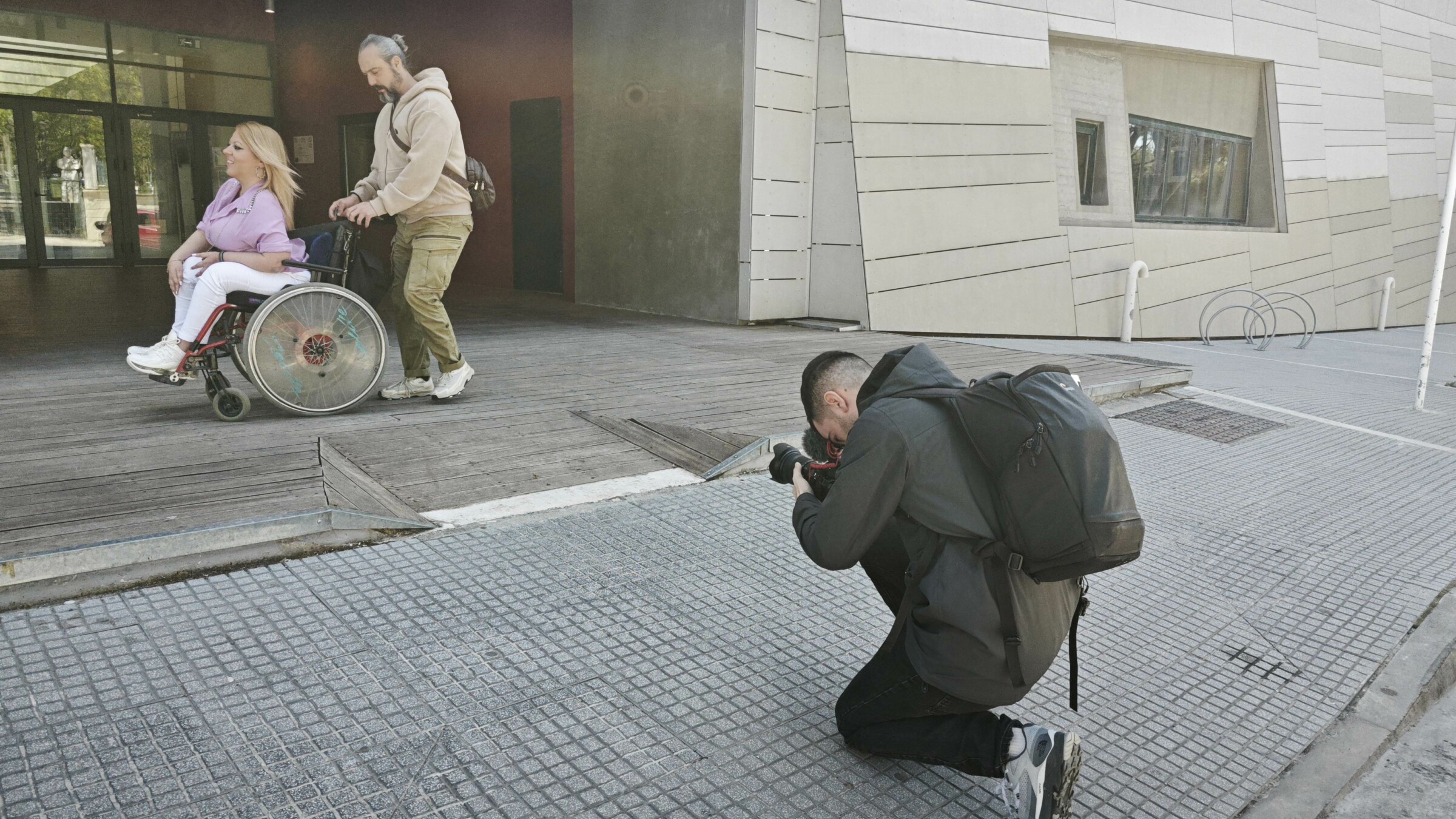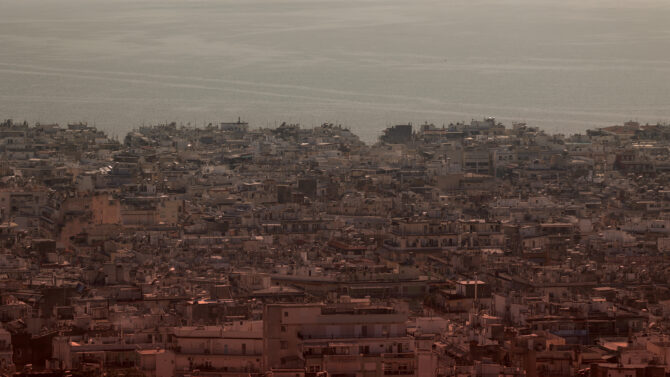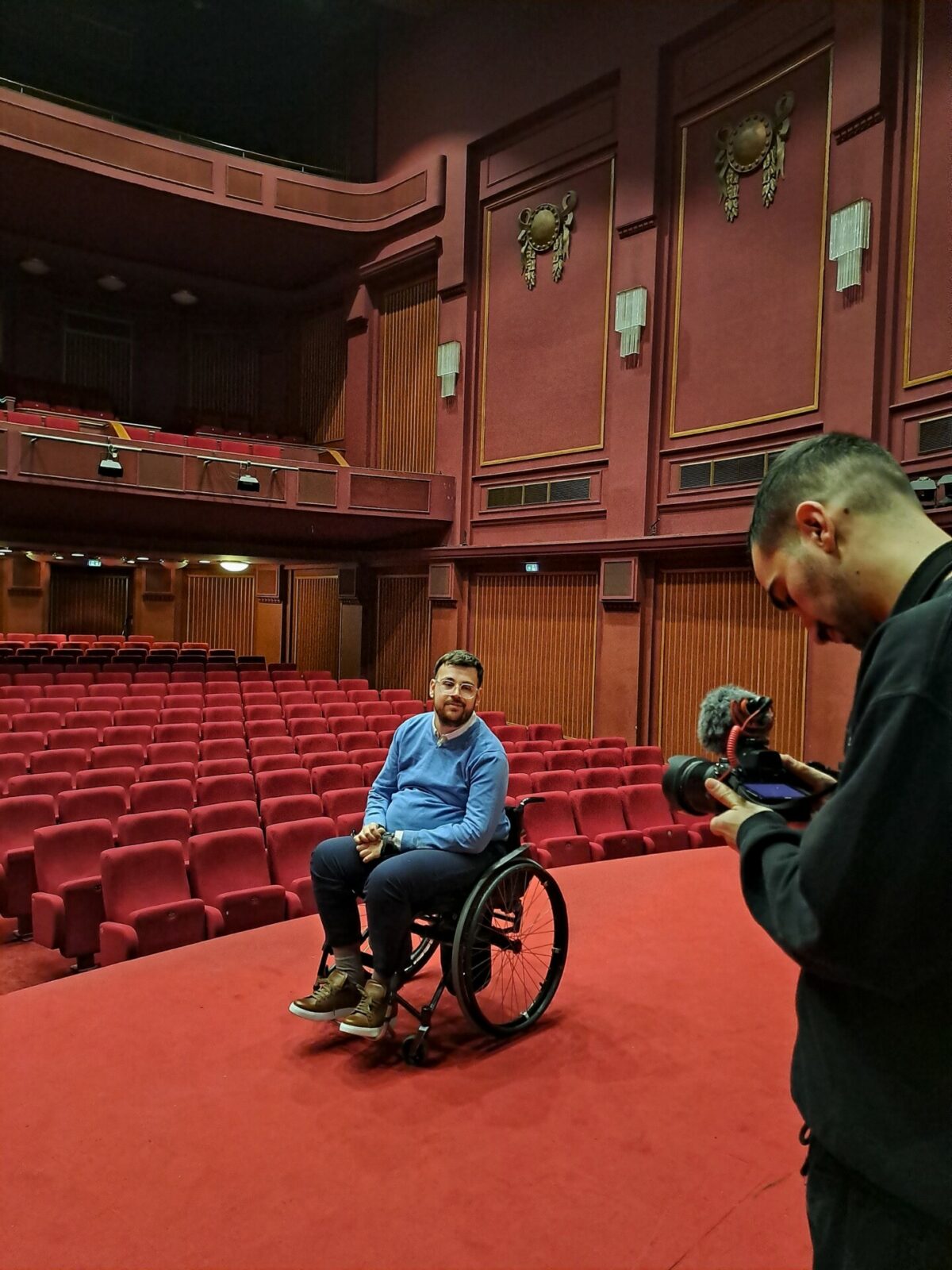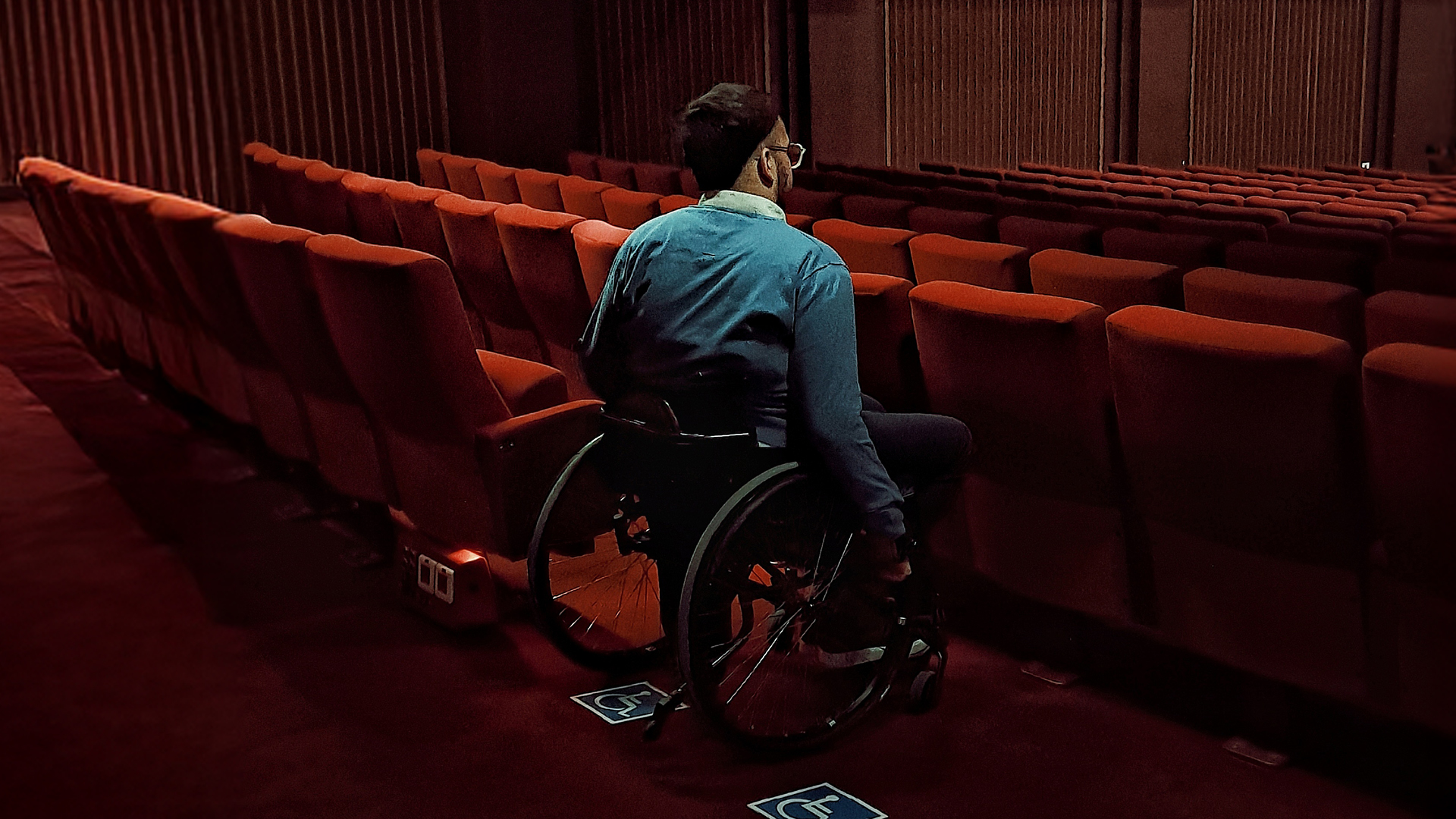Journalist Pavlos Maragkos describes the story behind the video report on the daily life of people with disabilities in the urban landscape of regional Greece. The investigation was conducted in collaboration with journalists Thenia Vassiliadou and Eleni Papastergiou, as part of this year’s iMEdD incubator for local media program.
The video report titled “The City (Does Not) Belong to Everyone” explores accessibility in public spaces through an on-site documentation of the experiences of people with disabilities in three Greek cities: Kozani, Thessaloniki, and Xanthi. This 11-minute video report focuses on everyday mobility, infrastructure functionality, and the ability to participate equally in social and public life.
The report takes a personal and experiential approach. In each city, a member of the journalistic team accompanies and interviews a person with a disability, who both describes and demonstrates their experience as they navigate the urban environment. The routes reflect everyday necessities: using sidewalks, accessing public spaces, entering cultural and sports venues, or simply moving safely through the streets. The camera follows their actual tracks, capturing the challenges they face.
The video reveals recurring problems: non-existent or damaged ramps, narrow or blocked sidewalks, and, in many cases, a lack of awareness and understanding on the part of the public. At the same time, the report highlights positive examples—improved infrastructure or good practices implemented by local municipalities—demonstrating that change is possible when there is planning and political will.

This project aims to reflect both the geographical diversity of regional Greece and the social realities that accompany it. The selection of the three cities was not based on population size or importance, but rather on the representation of different levels of development, urban planning, and cultural attitudes toward accessibility. The result is a broader picture of how cities address—or fail to address—the needs of their citizens with disabilities. The video combines field documentation with a narrative presentation of the findings. It sheds light on an everyday reality that often remains invisible— precisely because it does not affect the majority. However, it matters, not only because people with disabilities are citizens with equal rights, but also because the design of an accessible city is a key indicator of its overall quality of life and functionality.
The report poses a fundamental question in the public debate:
Investigating the Issue of Air Pollution in Thessaloniki and Ioannina

Journalist Sofia Christoforidou describes the story behind the report on air pollution in Thessaloniki and Ioannina. The investigation was conducted in collaboration with journalist Giorgos Tsantikos, as part of this year’s iMEdD incubator for local media.
Are Greek cities welcoming to all their citizens?
The answer—reflected in the journeys of the report’s protagonists—is complex, but it clearly reveals gaps that require attention.

The video report “The City (Does Not) Belong to Everyone” does not claim to fully cover the entire issue. Instead, it seeks to highlight a critical issue that remains marginalized in public discourse. It presents accessibility not as a special need, but as a fundamental issue of democracy, equality, and urban planning.
Watch the full video report here.
The project is published in Greek in two local media outlets.

